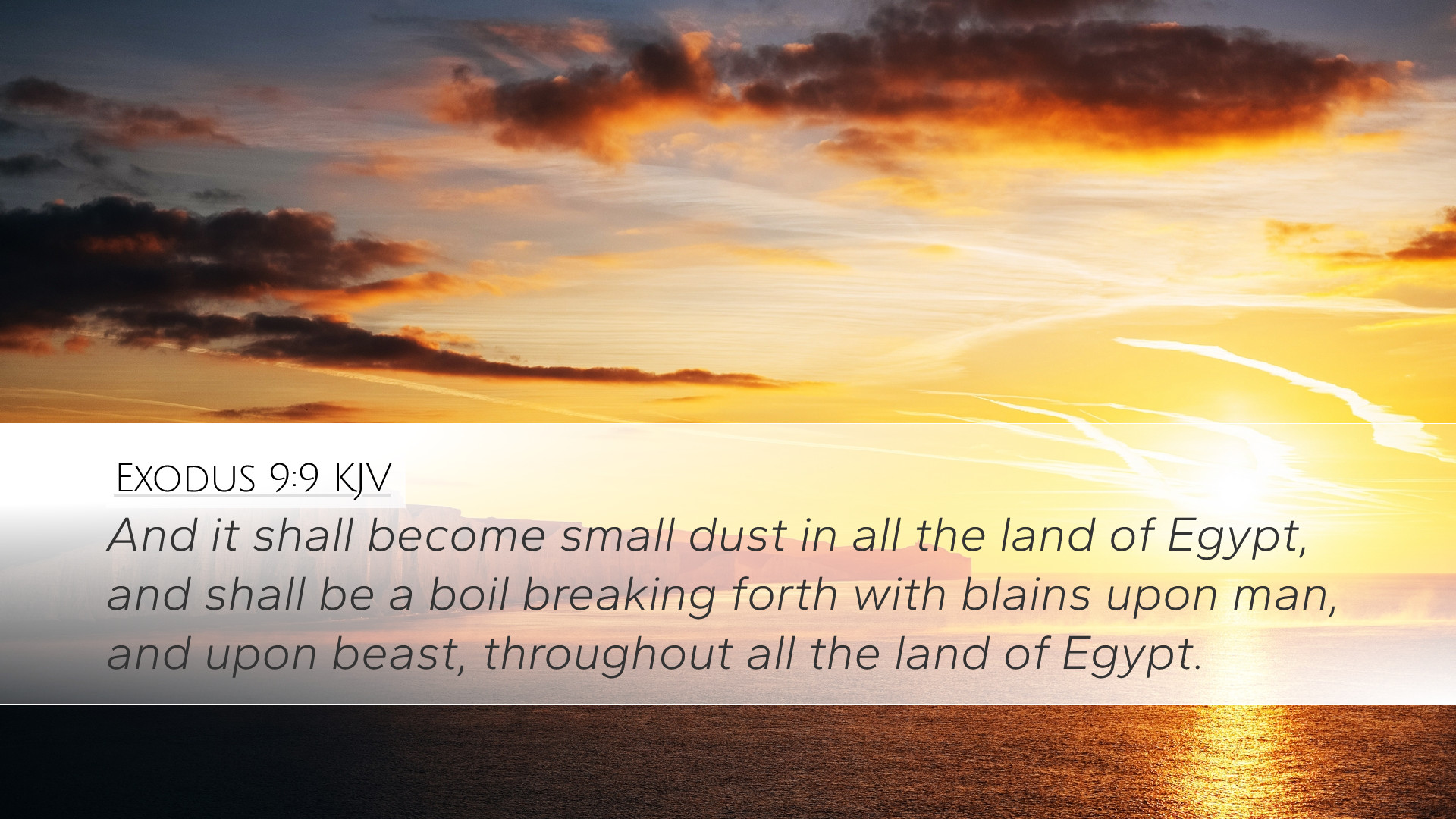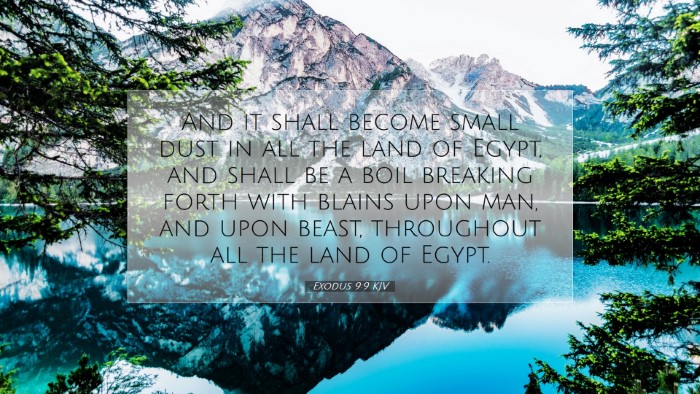Commentary on Exodus 9:9
Exodus 9:9 states: "And it shall become fine dust in all the land of Egypt, and shall cause boils that break out in sores on man and beast throughout all the land of Egypt." This verse is part of the narrative detailing the plagues that God inflicted upon Egypt, demonstrating His sovereign power and the consequences of disobedience to His commandments.
Contextual Analysis
This verse occurs during the account of the fifth plague, the plague of boils. Understanding the context of this plague is crucial to grasping the full meaning of the text. God had been sending a series of plagues to persuade Pharaoh to let the Israelites go, each representing a judgment against the Egyptian gods.
-
Judgment Against Idolatry:
The boils serve as judgment against the Egyptian practices of worship, emphasizing that their false gods could not protect them. Matthew Henry notes that through these plagues, God was asserting His might over the deities of Egypt, particularly those associated with health and disease.
-
Preparation for Deliverance:
Albert Barnes comments that these afflictions had the dual purpose of punishing the Egyptians and preparing them for the impending liberation of the Israelites. The severity of the plagues was intended to break Pharaoh's stubbornness.
Theological Implications
The narrative illustrates God's sovereignty over creation and His authority to carry out judgment. Adam Clarke notes that the transformation of the dust into boils symbolizes the pervasive nature of the judgment - it affects every individual and creature, highlighting sin's consequences.
-
Nature of God's Judgments:
God’s judgments are often intended for correction and repentance. In this case, the relentless severity is meant to compel Pharaoh and the Egyptians to recognize their faults and turn towards God.
-
Human Response:
The text invites reflection on human hardness of heart. Despite the evident signs and wonders, Pharaoh's heart continues to resist. The challenge for leaders and all people is to remain open to divine instruction rather than fall into obstinacy.
Historical and Cultural Insights
Understanding ancient Egyptian culture provides additional insight into this passage. Boils and skin diseases were serious issues in ancient times. The Egyptians worshipped numerous deities associated with healing, making this plague a profound symbolic defeat against their beliefs.
-
Health and Hygiene:
Boils often indicated a lack of hygiene and were associated with divine disapproval in the ancient Near East. This speaks to God’s moral order and serves as a reminder of the spiritual implications of physical maladies.
-
Deities of Medicine:
The Egyptian deity Imhotep was considered a god of medicine. By inflicting boils, God directly confronted the credibility of such idols, affirming His role as the ultimate healer and judge.
Applications for Today
This passage reminds us of the enduring truth that God holds authority over all aspects of life, including health. It challenges modern readers to consider how they perceive suffering, health crises, and divine judgment.
-
Reflection on Sin:
Just as the Egyptians faced the consequences of their idolatry, believers are called to reflect on their actions and orientations that might lead to spiritual ailments. It encourages a posture of repentance and humility before God.
-
Faith in Trials:
The trials faced by the Egyptians prompt introspection about our own trials. Are they chastisements, or are they meant to refine and strengthen our faith? This perspective can lead to growth rather than despair.
Conclusion
Exodus 9:9 is a profound statement of divine authority, calling attention to the serious consequences of rejecting God's will. It invites readers to acknowledge God's sovereignty and justice while also inviting them to consider the grace offered through repentance. The plagues, including the boils, serve as both a warning and a reminder that God desires a relationship marked by obedience and reverence.


